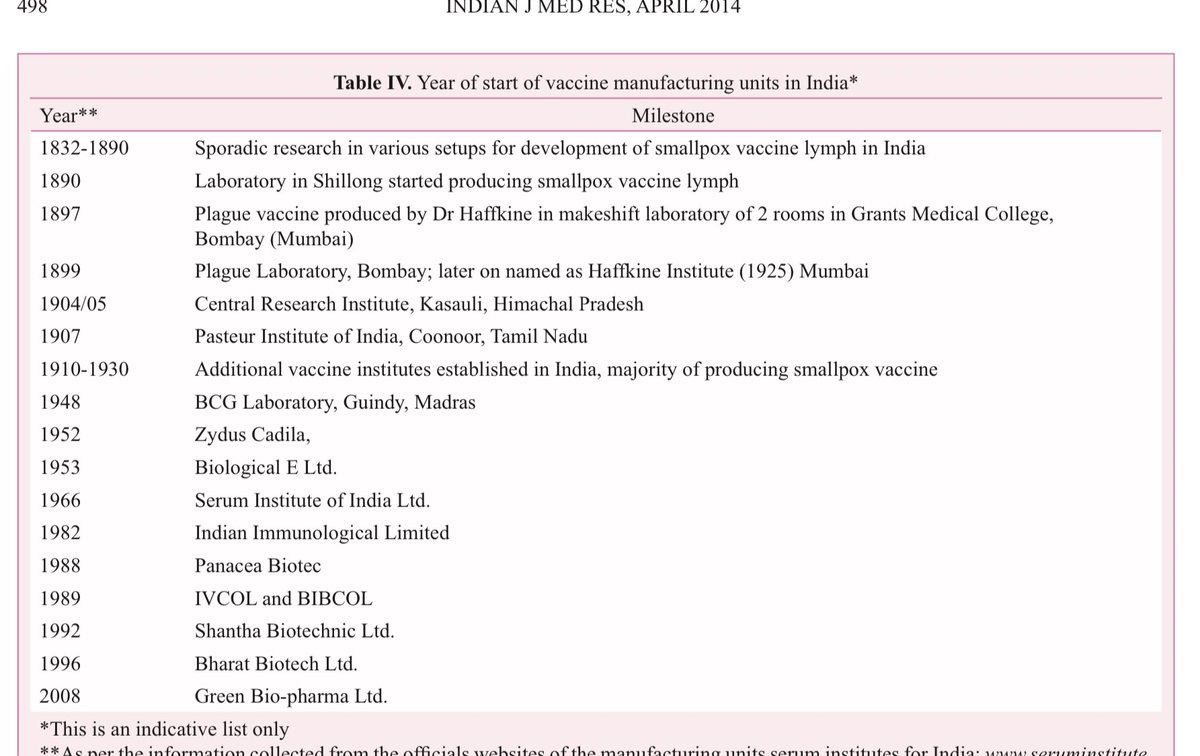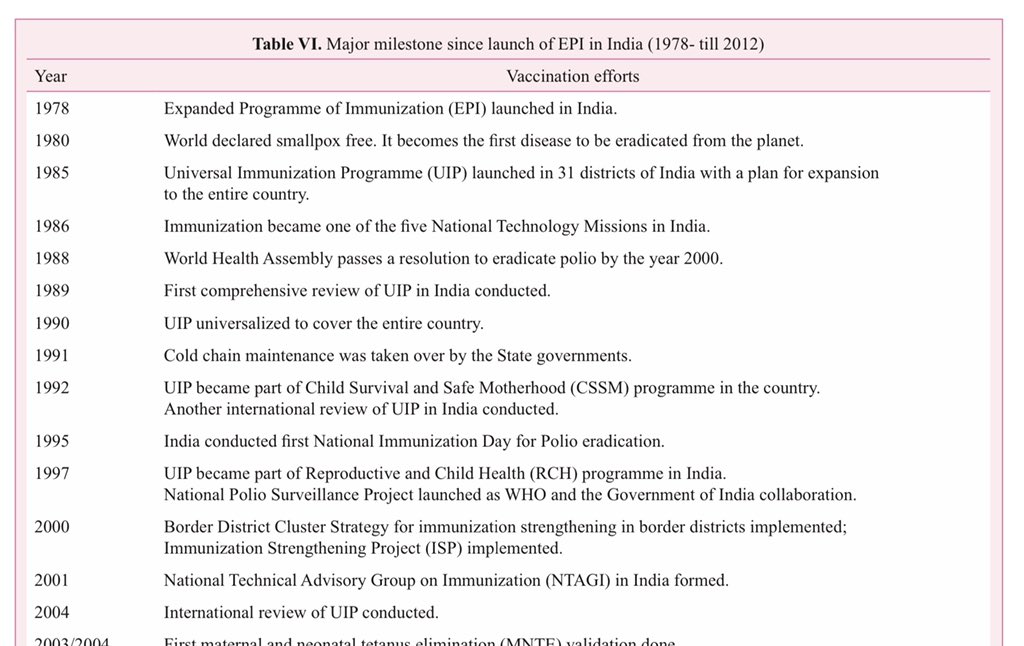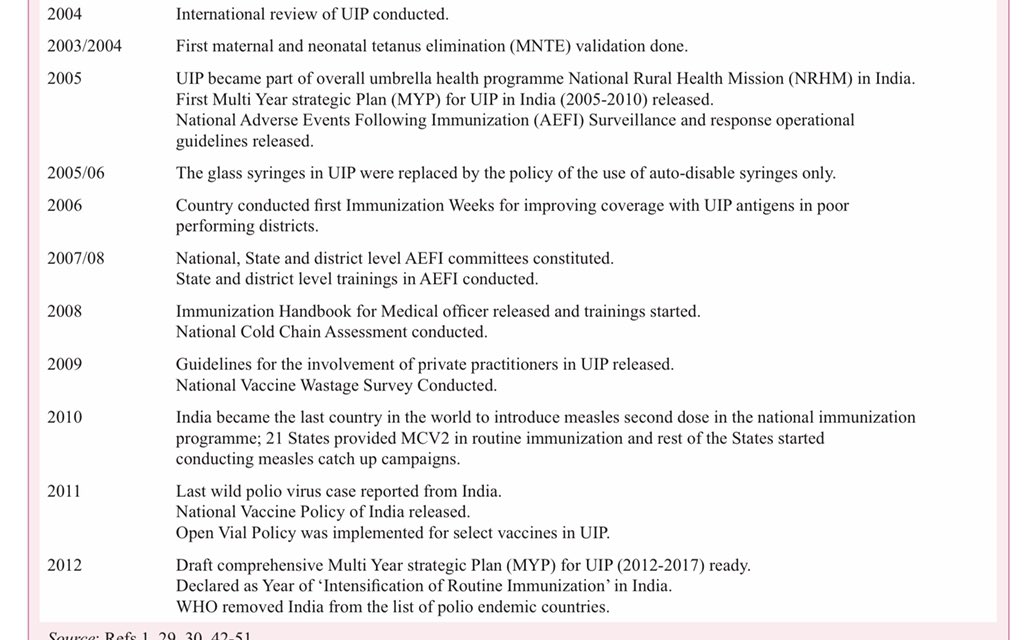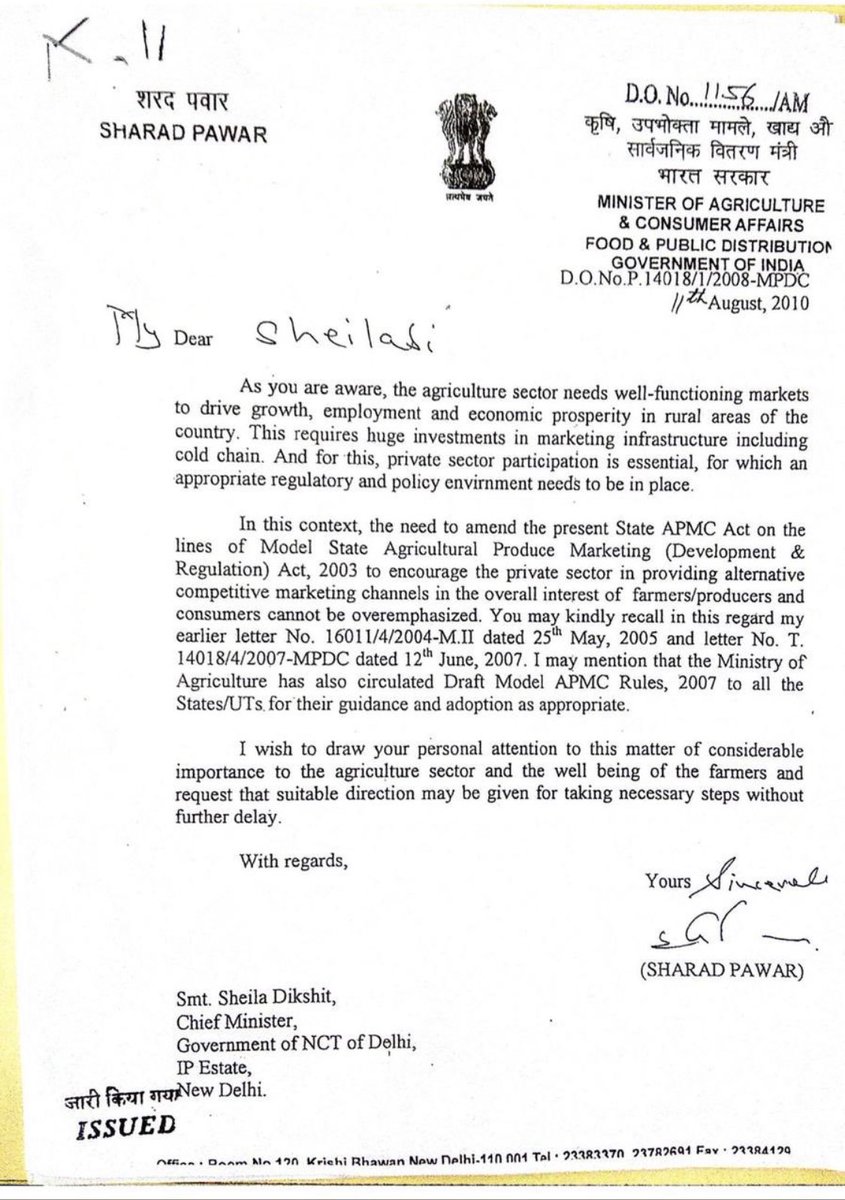
India produces over 60% of the total vaccines sold globally.
Free Universal Immunisation Programme was launched way back in 1985.
As Covid vaccination rolls out, let applause this great Indian success story, that must be handled with great care to ensure continued credibility
Free Universal Immunisation Programme was launched way back in 1985.
As Covid vaccination rolls out, let applause this great Indian success story, that must be handled with great care to ensure continued credibility
The vaccine production started in British times. Immediately after independence, a vast network of vaccine research and manufacturers was developed that made the success story possible 

Expanded Programme of Immunisation was launched in 1978.
People of my age remember the extensive free vaccination in schools and all still have marks of vaccination on our arms.
Small pox to Polio have been eradicated.
free universal immunisation was expanded in 2005

People of my age remember the extensive free vaccination in schools and all still have marks of vaccination on our arms.
Small pox to Polio have been eradicated.
free universal immunisation was expanded in 2005


This success story of vaccine development, manufacture and immunisation could happen because India laid a huge network of Research Institutes. A glance:
International Centre for Genetic Engineering & Biotechnology (ICGEB),Delhi
National Institute of Immunology (NII), Delhi 5/n
International Centre for Genetic Engineering & Biotechnology (ICGEB),Delhi
National Institute of Immunology (NII), Delhi 5/n
New Delhi
National Institute of Virology (NIV), Pune
National Aids Research Institute (NARI), Pune
National Institute of Cholera and Enteric Diseases (NICED), Kolkata
Tuberculosis Research Centre (TRC), Chennai
Regional Medical Research Centre (BBSR), Bhuvaneshwar
6/n
National Institute of Virology (NIV), Pune
National Aids Research Institute (NARI), Pune
National Institute of Cholera and Enteric Diseases (NICED), Kolkata
Tuberculosis Research Centre (TRC), Chennai
Regional Medical Research Centre (BBSR), Bhuvaneshwar
6/n
Central Drug Research Institute (CDRI), Lucknow
Institute of Microbial Technology (IMTECH) Chandigarh
Centre for cellular and Molecular Biology (CCMB), Hyderabad
Indian Institute of Chemical Technology (IICT), Hyderabad
Indian Institute of Chemical Biology (IICB), Kolkata 7/n
Institute of Microbial Technology (IMTECH) Chandigarh
Centre for cellular and Molecular Biology (CCMB), Hyderabad
Indian Institute of Chemical Technology (IICT), Hyderabad
Indian Institute of Chemical Biology (IICB), Kolkata 7/n
All India Institute of Medical Sciences (AIIMS), New Delhi
Indian Institute of Sciences (IISC), Banglore
Anna University, Chennai
Mahatma Gandhi Institute of Medical Sciences (MGIMS), Wardha
Indian Immunologicals Ltd. (IIL), Hyderabad
8/n
Indian Institute of Sciences (IISC), Banglore
Anna University, Chennai
Mahatma Gandhi Institute of Medical Sciences (MGIMS), Wardha
Indian Immunologicals Ltd. (IIL), Hyderabad
8/n
Sanjay Gandhi Post Graduate Institute of Medical Sciences, (SGPGIMS), Lucknow
Delhi university(DU), South Campus
Pasteur Institute of India, (PII), Coonoor
Haffkine Institute (HI), Mumbai
Tata Memorial Cancer Hospital (TMC), Mumbai
9/n
Delhi university(DU), South Campus
Pasteur Institute of India, (PII), Coonoor
Haffkine Institute (HI), Mumbai
Tata Memorial Cancer Hospital (TMC), Mumbai
9/n
King Institute of Preventive Medicine, Chennai
Central Research Institute (CRI), Kasauli
Hyderabad University, Hyderabad
Institute of Cytology & Preventive Oncology (ICPO), Delhi
10/n
Central Research Institute (CRI), Kasauli
Hyderabad University, Hyderabad
Institute of Cytology & Preventive Oncology (ICPO), Delhi
10/n
• • •
Missing some Tweet in this thread? You can try to
force a refresh




